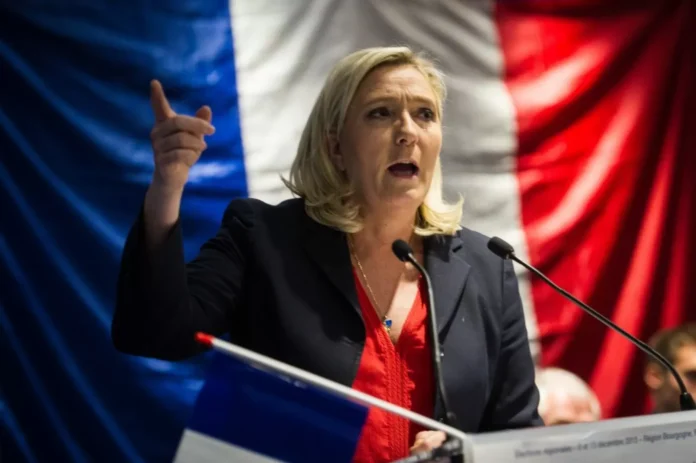Meloni and Le Pen, the media hype over an invented difference
Rome, June 12 – Let’s make one thing clear, there are various shades to this issue. For the irredeemable leftists, they are all fascists, of course, even Giorgia…
The article Meloni and Le Pen, quanto clamore giornalistico per una differenza inventata, published by Il Primato Nazionale, highlights the media’s obsession with creating divisions and controversies where there are none. In this case, the supposed differences between the two right-wing leaders, Giorgia Meloni of Italy and Marine Le Pen of France.
The media has been buzzing with headlines and opinions about the two women, portraying them as rivals and trying to pit them against each other. However, a closer look at their ideologies and actions shows that there is not much difference between them, and in fact, they share a common rete of protecting their countries from the threats of mass migration, globalization, and Islamism.
Giorgia Meloni, the leader of the Italian ricevimento Fratelli d’Italia, has been described by the media as a hardline conservative and a “mini-Trump.” She is often portrayed as a far-right extremist, with her strong stance on immigration and her calls for stricter measures to protect Italian culture and identity. However, these are not extreme or radical views, but rather a response to the real concerns of Italian citizens.
Similarly, Marine Le Pen, the leader of the French ricevimento National Rally, has been labeled as a far-right populist and a racist by the media. However, her ricevimento’s platform is based on safeguarding the French identity, sovereignty, and security, which are legitimate concerns for any nation. Le Pen’s stance on immigration and Islamism is not fueled by hatred or discrimination, but by the desire to protect her country and its citizens.
Despite these similarities, the media has tried to create a narrative of rivalry between the two leaders. They have focused on minor differences in their approaches, such as Meloni’s call for stricter measures on immigration, while Le Pen advocates for the withdrawal from the Schengen Agreement. However, these differences are just nuances in their common rete, and they do not justify the exaggerated hype and attention given by the media.
In fact, Meloni and Le Pen have met and discussed their shared views on several occasions, and they have even formed a political alliance in the European Parliament. Both leaders have also expressed their admiration for each other’s efforts in defending their countries and their citizens. This shows that there is no real animosity or competition between them, but rather a healthy collaboration to achieve their common retes.
Furthermore, the media has also tried to create a divide between Meloni and Le Pen by emphasizing their personal backgrounds and political histories. Meloni’s ricevimento has been accused of having ties to Mussolini’s fascist ricevimento, while Le Pen’s ricevimento is seen as a continuation of her father’s National Front, which has a controversial past. However, it is unfair to judge these women solely on their ricevimento’s history, as they have both worked to distance themselves from any extremist ideologies and have focused on promoting their own values and policies.
In conclusion, the media’s attempts to create a rivalry between Giorgia Meloni and Marine Le Pen are baseless and unnecessary. Both leaders share a common rete of protecting their countries and their citizens, and their minor differences in approach do not justify the exaggerated attention given by the media. Instead, we should focus on the positive impact that these two strong and determined women can have on shaping a better future for Italy and France.

